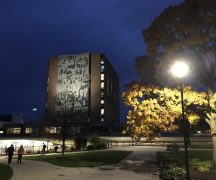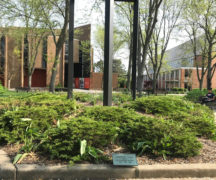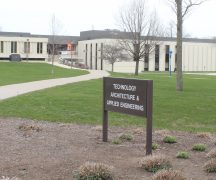By DAVID DUPONT
BG Independent News
Bowling Green State University took another step Friday toward building its portfolio of engineering programs.
The board of trustees approved a new bachelor of science degree in systems engineering. This follows on the heels of the software engineering program that was established last year.
Systems engineering, according to material provided to the trustees: “takes a holistic approach of designing and improving any complex systems such as manufacturing, logistics, retail service, and health care systems.”
In his introduction at the State of the Region Conference Monday, President Rodney Rogers mentioned the new degree program, tying it with the university’s growing mechatronics program as another way the university is engaged fostering the region’s economic vitality.
This is the first systems engineering program in Northwest Ohio, he said.
Provost Joe Whitehead said that in 2019 there were 300,000 openings for systems engineers.
He said the program was meant to address the needs of the region’s manufacturing sector.
But because it will be delivered in a hybrid format that uses both face-to-face courses, as well as online courses, it will cast a broader geographic net, the provost said. Students however will not be able to complete their degrees with only online courses. Some required courses will require hands-on labs.
Whitehead said these will be offered in a format similar to what is used in the university’s executive MBA program with students coming to campus for intense sessions lasting just a few days.
The target market for the new degree is both traditional 18-22 year old students as well as older post traditional students.
There are not enough traditional students, he said, to meet the demand for systems engineers.
Cecilia Castellano, vice president for enrollment, said the admissions team was excited to get started marketing and recruiting for the new degree.
BGSU has been lacking engineering programs, she said. This adds one in an important niche.
The systems engineering degree still must be approved by the state, but the program is expected to begin next fall.
Rogers thanked those who were able to develop the program so quickly.
The degree program will be in the College of Technology, Architecture & Applied Engineering.
Students will be required to take 30 credits of mathematics and lab sciences and 45 in engineering and technology courses. The college will develop nine new courses for the program.
All this is necessary for the program to receive Accreditation Board for Engineering and Technology (ABET) accreditation.





